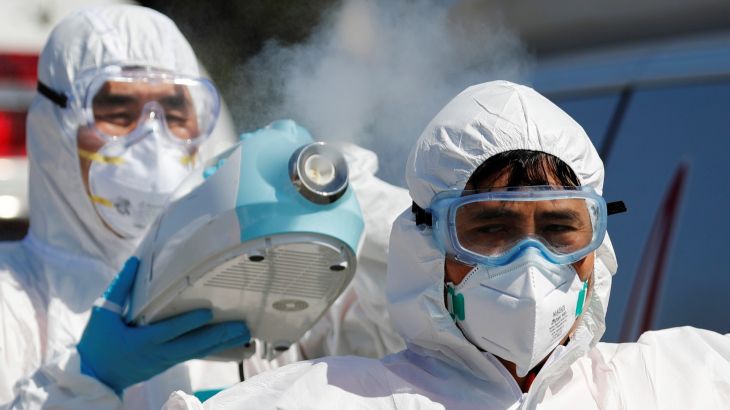
Testing times: Why South Korea’s COVID-19 strategy is working
We ask scientist Jerome Kim about South Korea’s remarkable success in slowing down the spread of the coronavirus.
The coronavirus continued to spread around the world this week and Italy’s death toll surpassed that of China’s. Governments called on citizens to self-isolate, closed borders, put cities into lockdown and shut all but essential businesses.
Amid the crisis, and despite a second wave of infections in Asian countries, South Korea continues to lead the way in containing the spread of COVID-19, with one of the lowest casualty rates in the world.
Keep reading
list of 4 itemsMexico’s teachers seek relief from pandemic-era spike in school robberies
‘A bad chapter’: Tracing the origins of Ecuador’s rise in gang violence
Why is the US economy so resilient?
According to Johns Hopkins University medical researchers, as of this week, the COVID-19 death rate is 0.97 percent in South Korea, compared to 7.94 percent in Italy, 3.98 percent in mainland China and Hong Kong, and 1.68 percent in the United States.
Jerome Kim, director general of the International Vaccine Institute, said one of the reasons South Korea has done so well is that it has a robust biotech industry made up of many small companies run by scientists.
“The Chinese published the sequence of the coronavirus. These companies looked at it and then they rapidly developed tests,” Kim said.
Korean companies acted fast to produce those tests and the country now has enough to screen some 20,000 people a day.
“They [South Korea] opened up testing centres that people could drive in and go through. They made it all free and once they identified people, they put them into quarantine,” Kim said.
In early February, the government also obtained mobile phone records, credit card receipts and other private data of everyone who tested positive for COVID-19, and used the information to track the spread of the virus, making much of the data available to the public.
“In this case, you have the health of a nation or the health of a city and you have individual rights. And so I think a lot of people don’t mind because they want to know where they might potentially have been exposed, particularly if they develop symptoms,” Kim said.
Kim acknowledged that while South Korea has worked diligently to combat the virus, the battle is far from over. “This is a war and like a war, winning the first battle is important but it’s not the only thing,” Kim said.
He believes the government’s ultimate aim will be to restore normalcy to everyday life.
“And the only way to really achieve that is to use a vaccine. You’ll have to be able to ensure that as people carry on their activities of daily living, that they’re going to be protected,” he said.
In this week’s UpFront Jerome Kim, director general of the International Vaccine Institute, explains how South Korea has been able to stay on top of the coronavirus.